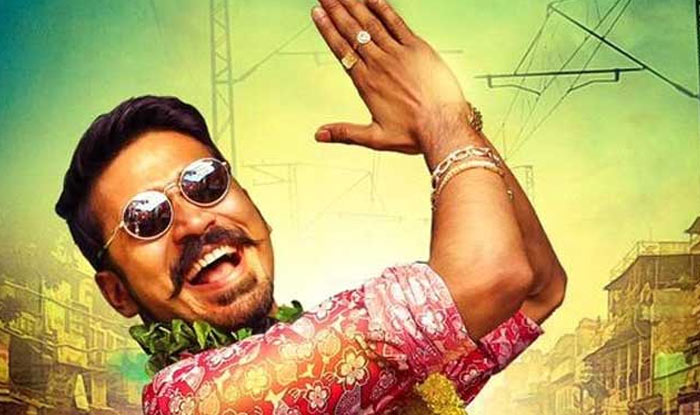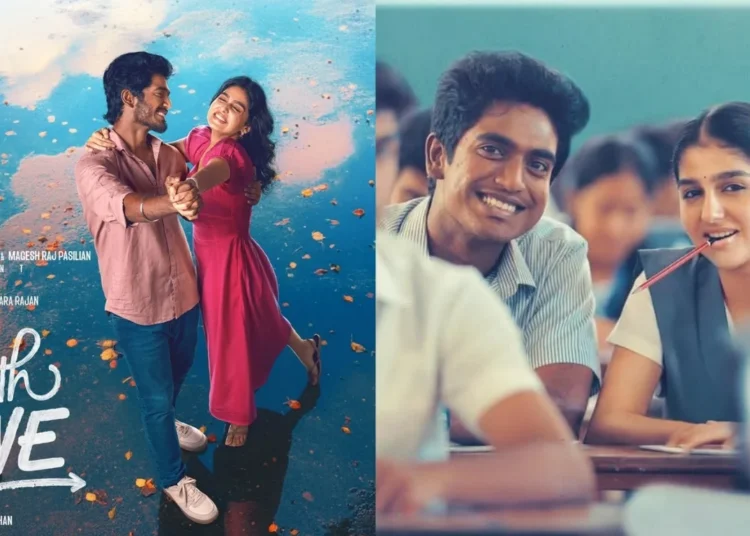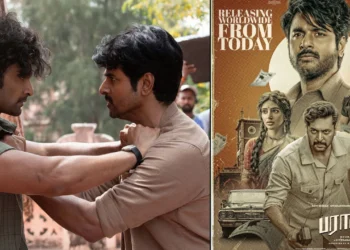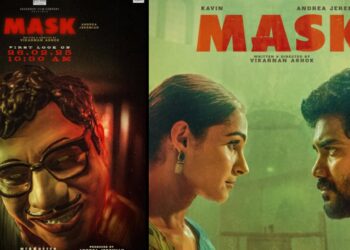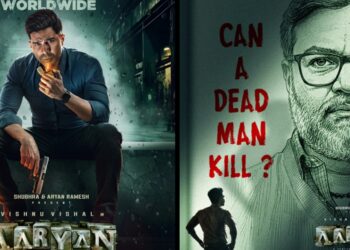Fair warning, spoilers ahead!
Since its release three years ago, I’ve heard on numerous occasions what an atrocious piece of crap Maari is. People often piss on it — usually accompanied by eyes that roll so far back, it feels like I’m at an audition for the next ‘The Undertaker’. My aunt too has told the story of how she desperately wanted to leave the cinema and puke blood after 15 minutes, only to be forced into a straightjacket and strapped to the seat by her sons sitting either side of her. Me? I can’t relate. I’m here to say that despite what some may tell you, Maari is a gem. A gem in a genre that’s unique to South Indian Cinema: Mass-Masala. I would even go as far as to call it one of the best Mass-Masala flicks of the 2010s.
I get the criticisms. “Maari doesn’t have a good message!” “What is the movie trying to teach us?!” But a good message doesn’t make a good movie. And the beauty of Maari is that it ain’t interested in teaching you shit. Here’s a movie that knows what it is — a ridiculous, larger than life, gangster-comedy — and focuses all its energy on being exactly that. Nothing more, nothing less.
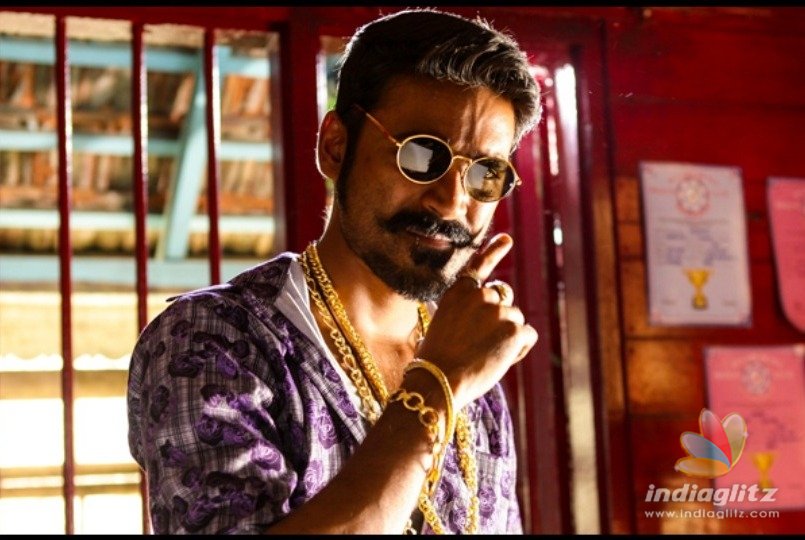
The opening scene sets the tone perfectly. Director Balaji Mohan presents Maari (Dhanush) in what you would assume to be a typical Mass hero introduction. A thug is harassing an old neighbourhood chai seller for protection money. We cut to Maari approaching from a distance. He struts towards the scene of the ruckus and lays a punch (to the camera). Of course. We know what to expect by now. Except when the camera cuts away, we don’t see the thug on the ground with a bloody nose, but the old man. Maari then tells the old man, “My guy has been asking you to pay up for so long… under the sun. Poor fellow. Can’t you pay him the money?!”
You see Maari isn’t a story about a hero, but a tale of a prick, who every now and then engages in acts that may come off as heroism — and even then he’s not doing it for the “community.”
In a separate scene, a beautiful damsel (Kajal Aggarwal) tells Maari she’s confused: “Neega Nallavara Kettavara?” The line isn’t new. We’ve heard it or some variation of it countless times in Tamil movies, most famously when a little kid throws that question to Kamal Haasan in Nayakan. But here, there isn’t a swell of emotional music followed by a closeup of our protagonist’s tear-filled eyes. Instead, Maari laughs and says, “I’m definitely a bad guy.” These sequences come as a pleasant surprise.
Even more surprising: the lack of hero worship — one of my biggest issues with a lot of Mass-Masalas. This tends to happen a lot in Vijay-starring movies. Scenes where Vijay’s hailed as the second coming of Jesus Christ. Followed by inorganic sequences where Vijay (regardless of the character he’s playing) will put the movie on pause just to bash you in the head repeatedly with a moral textbook.
Take the courtroom scene from Bairavaa for example. There, Vijay’s character Bairavaa (whose profession is a collection agent) is an audience member in a courtroom. He then walks up to the witness stand as he pleases, and WITHOUT A LAWYER to do the talking for him, launches into a monologue about how Mother India is messed up. One, none of what he says has any relevance to the case at hand. Two, he just rambles on without presenting any evidence. Funnily enough, the judge listens to him.
Here, nobody puts Maari on a pedestal and hails him as a saviour. His townsfolk constantly iterate what a nuisance he is. His best friends constantly tease him. A little girl quibbles with him. And when he gets arrested at the midway point, courtesy of the beautiful woman who pretended to fall in love with him (in a ruse to get him to confess a past crime on camera), his townsfolk celebrate like Deepavali came early.
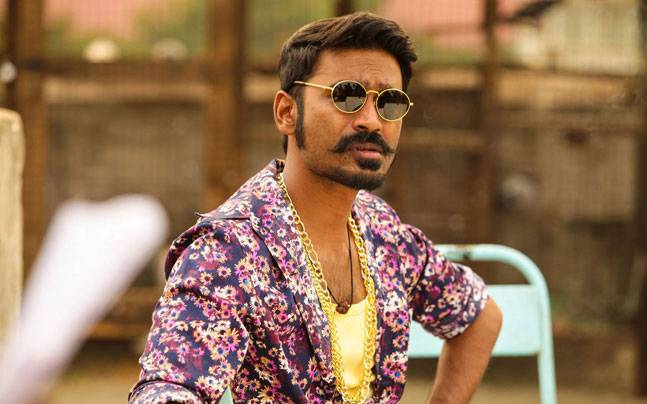
When Maari is released from prison many months later, we learn that the police inspector (Vijay Yesudas) is actually in cahoots with the opposing, much more vile gang. Together, they’ve have taken over the neighbourhood, collecting three times more protection money than Maari did. Once again, you assume that this is gonna be the big turning point in the film where Maari becomes a conventional protagonist and avenges his town folk. Only that turning point doesn’t come.
In most situations, a lack of character growth would result in a substandard film. Here, the lack of broad character development plays to its benefit. Maari is a rowdy at the start and he’s a rowdy at the end. The comedy, lite-drama and mass moments stem from how everyone around him reacts to his rowdyism, how we as an audience are constantly caught off guard by the decisions he makes, not because it makes no sense, but because it makes perfect sense — the most badass sequence in the film ends not with the townsfolk not paying protection money, but with them paying slightly less protection money. In many ways, Maari is what Baba should have been.
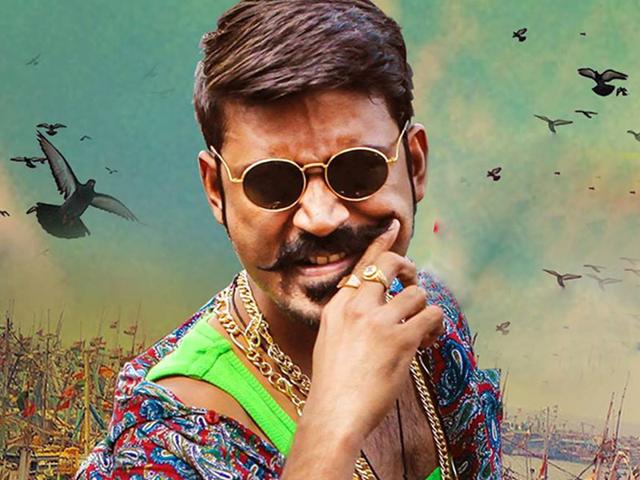
People often don’t discuss acting when it comes to Mass movies. We should. There’s a reason why not everyone can play these types of roles. It is a gift that many do not have. It may develop over time, but it cannot be trained. There’s a reason why I cringe every time Sivakarthikeyan dips his feet into this genre. And believe it or not, it is this movie that convinced me once and for all of Dhanush’s acting prowess.
He is arguably the best actor working in South Indian cinema today (save for Rajini and Kamal), definitely the most versatile. Vijay is great at Mass, mediocre at everything else. Suriya and Vikram have proven that they’re stunning dramatic actors, but over the past decade or so, have been adamant about not doing anything else other than Mass, which neither of them is especially talented at. Dhanush, on the other hand, does both magnificently. We’ve seen his dramatic range in films like 3, Aadukalam and Mayakkam Enna. And in films like VIP, Kodi and Maari, he proves that he fires on all cylinders when it comes to the Mass-y stuff too.
Maari may be a throwaway Mass movie, but Dhanush doesn’t treat it as such. He acts his heart out. Watch every scene closely. On display is a man so intuned with his character, oozing so much charisma and vigor that it becomes believable that a person the size of a twig can actually beat the living daylights out of men much, much burlier than him. You can see it in his eyes. Dhanush believes every line he’s delivering. He believes it in his bones. And we believe it too. And he has something else in him that only one other Mass star — Rajinikanth — possesses. Excellent comic timing. Here, he’s able to tango with and match up to Robo Shankar (who’s on fire — scorching hot fire I tell ya) beat for beat for beat. Hilarious stuff!
That you cheer for and not laugh at him when he scissors his fingers towards his enemy’s face while saying Senjuruven (I’ll finish you off) is a testament to his performance. Consider the scene where Dhanush yells at the police officer (Vijay Yesudas) in the first act. When it happens you don’t immediately burst into applause. You’re silent, transfixed by Dhanush. You can feel the officer’s balls tremble. Dhanush has that fire in him and that’s why he’s the second best at it after Rajinikanth, despite what the box office numbers say.
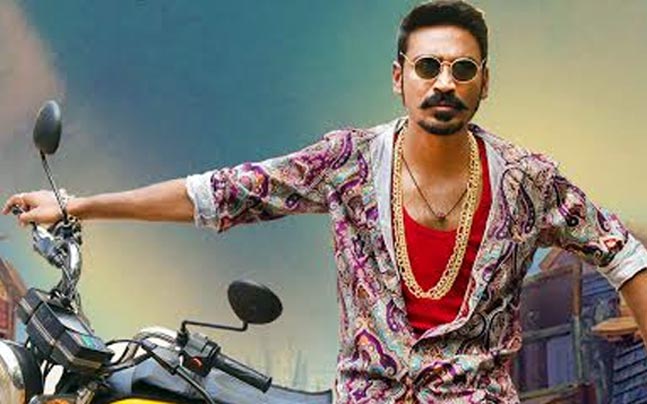
Speaking of moments that warrant claps and cheers, there are plenty of those. Sequences designed to get the crowd jumping out of their seats, fist pumping the air. Like the scene near the beginning. We first hear the sound of a windshield breaking, followed by Maari approaching from behind a car, in slow-mo, cigarette in his mouth, while Anirudh’s tune roar in the background. Interestingly enough, the most MASS sequence in the film has no ass whooping, slow-mo shots or signature punch dialogue. It just has Maari sitting down, dead-silent, leg on a table, flicking firecrackers. This sequence and the entire movie at large proves that Balaji Mohan has a knack for crafting Mass-Masalas. He understands the craft. And he understands how to have fun with a genre that has been a South Indian cinema staple since the MGR era, redefined later by Suresh Krissna and Rajinikanth in Annamalai.
Is Maari perfect? Not quite.
For these types of movies to truly thrive; to truly achieve greatness, there needs to be a villain that can truly stand toe to toe with our hero. Three of Rajinikanth’s classic MASS films, Annamalai, Baashha and Padayappa consists of villains who are forces to be reckoned with: Sarath Babu, Raghuvaran and Ramya Krishnan. When these three villains push Rajini’s buttons, we bought it. We felt for him. And that’s why it’s all the more satisfying when he hits back. Here, we have Vijay Yesudas, who lost the game of cat and mouse the moment Dhanush screams at him for the very first time. He doesn’t have Dhanush’s vigour or presence. He’s a schoolboy trying to sit with the big kids. It isn’t his fault, he’s just poorly cast. As a result, there isn’t a fraction of a second throughout the film where I actually doubt Maari’s ability to overcome him. There’s also the slightly unfocused screenplay, which would have been more effective without the Sandalwood smuggling storyline.

I can get past those weaknesses because of how much fun the movie is. And that’s the keyword: Fun. From Anirudh’s exciting composition (this is my favourite Anirudh album to date) to the badassery, the comedy and everything in between. This movie is a riot! But to enjoy this film, I think it’s important for us to understand that Maari isn’t a Mass movie in the same vein as Baashha, Annamalai, Pokkiri, Mersal, etc. This is director Balaji Mohan looking at a lifetime worth of Mass movies and having a blast with the genre. It is a ridiculous, flashy almost satirical celebration of the Mass genre.
Hey you! Yes you, hot stuff. Like my article? Leave a comment below and let me know what you think. Also, don’t forget to share it with your buds. And if you’d like to talk movies you can hit me up here: @dashtalksmovies
Follow us on Instagram, Facebook or Telegram for more updates and breaking news.


